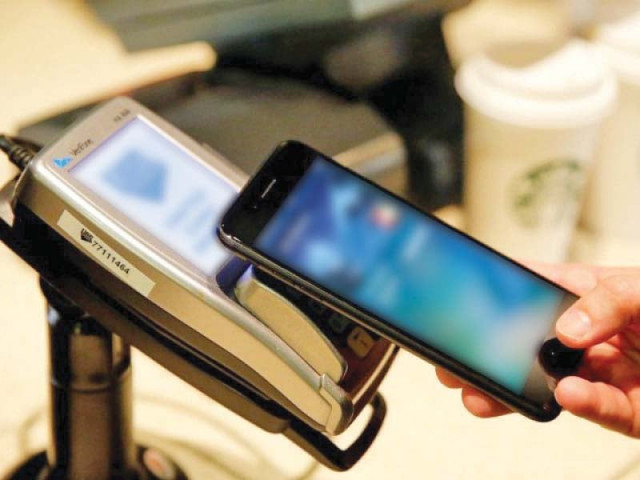Pakistan unveils strategy to move to cashless economy
SBP will launch mobile app, install 1m digital access points over next 3 years

The new system is aimed at digitalising each and every payment, including the large payments made by federal and provincial governments, and receiving worker remittances in Pakistan. PHOTO: FILE
"The cost of cash right now is huge in Pakistan…[it] is one of the countries which stands out with a very large ratio of cash," said State Bank of Pakistan (SBP) Governor Reza Baqir, before he along with World Bank President David Malpass formally launched the National Payment System Strategy (NPSS) on Friday.
The strategy lays out the road map for a modern and digital payment network. It will make it easier for new companies; banks and fintechs to enter the market and also aid people in accessing the financial system, "which means for the people, it will be easier to make payments, it will be easier to receive payments, it will be easier to save and it will be easier to plan for your financial future," Baqir added.
Using mobile wallets to fix economy
The migration to efficient electronic payments stimulates consumption and trade, bringing benefits to the whole economy. "By migrating to electronic means, the strategy intends to boost Pakistan's GDP by 7%, create four million jobs, bring in $263 billion in new deposits, representing a potential market of $36 billion, all by 2025," said SBP Director for Payment System Sohail Jawad in his detailed presentation on the NPSS.
The new system is aimed at digitalising each and every payment, including the large payments made by federal and provincial governments, and receiving billions of dollars in international worker remittances in Pakistan.
The start of implementation of the Micro Payment Gateway - which allows transfer of funds in almost real time and is expected to cause a rapid surge in online payments in public and private sectors - is a major part of the strategy for the national payment system.
"Greater reliance on digital means that we have greater documentation of the economy," Baqir added.
He said the prime minister had agreed to take three key actions for financial inclusion and promotion of the digital payment system, including interoperability of the Unstructured Supplementary Service Data (USSD) channels for sending and receiving money from one fintech customer to another and reducing the cost of accessing the National Database and Registration Authority (Nadra).
He asked bankers and high officials of fintech and other non-banking institutions present on the occasion to play their role in implementing the strategy to take Pakistan to the next level of success. He also asked them to especially increase access to banking services for women.
The governor said that they, in collaboration with the private sector, would increase the number of digital access points for making easy payments and had planned to install additional one million digital access points over the next three years, especially with merchants.
He asked them to take merchants on board and educate them as to how the new system was safe, efficient and inclusive and how it would benefit them.
SBP starts implementing faster retail payment system
The SBP official added that cyber security had remained a key focus area of the central bank as keeping the system protected from cyber-attacks was a major challenge.
Addressing the gathering, World Bank President David Malpass congratulated Pakistan over the launch of the strategy as he was of the view that it was the right time to make that happen.
He said the World Bank, its team and he himself, all were available to Pakistan to "help make this (transformation to digital) happen successfully. We have resources and energy to provide system to implement the national payment system strategy".
"The (implementation of) Micro Payment Gateway, in collaboration with the private sector, can be completed within six months," he said.
The Pakistan Telecommunication Authority (PTA) could allow interoperability through USSD channels to facilitate payments from one fintech customer to another soon as it remained a key milestone in implementing the strategy, he said.
Published in The Express Tribune, November 2nd, 2019.
Like Business on Facebook, follow @TribuneBiz on Twitter to stay informed and join in the conversation.



















COMMENTS
Comments are moderated and generally will be posted if they are on-topic and not abusive.
For more information, please see our Comments FAQ